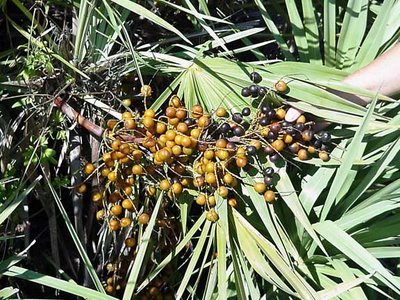
The popular herbal supplement saw palmetto bought by men to relieve discomfort caused by an enlarged prostate does not work, say researchers.
Thousands of men take the remedy saw palmetto, which comes from the fruit of a type of palm tree, to improve urinary problems caused by benign prostatic hyperplasia (BPH).
But a new study’s findings showed that even taking three times the standard dose of saw palmetto produced no benefit.
Many older men take saw palmetto capsules bought from health food shops or on the internet as a first option when they are diagnosed, before drugs to make the prostate shrink or surgery.
Saw palmetto is the most popular supplement for BPH, and part of a growing market in health supplements that worth billions of dollars each year.
The multi-center study, led by Michael Barry, MD, at Massachusetts General Hospital in Boston, US, involved more than 300 men aged 45 and older who had moderate symptoms of enlarged prostate, including frequent urination and difficulty emptying their bladders.
Men were randomly selected to receive a daily saw palmetto supplement or a placebo capsule that smelled and tasted the same.
After 24 weeks the saw palmetto dosage was increased from 320 milligrams to 640 milligrams. And the dosage of saw palmetto was raised again to 960 milligrams 24 weeks later.
At the end of nearly 17 months, men taking the saw palmetto supplement and placebo were still suffering identical symptoms.
Neither group of men knew who was taking the herbal remedy until the study was completed, according to results published in the Journal of the American Medical Association.

Study leader Professor Gerald Andriole, from the Washington University School of Medicine in St Louis, said:
“Now we know that even very high doses of saw palmetto make absolutely no difference.
“Men should not spend their money on this herbal supplement as a way to reduce symptoms of enlarged prostate because it clearly does not work any better than a sugar pill.”
Prof. Gerald Andriole said there was no benefit to taking the saw palmetto supplement compared with the placebo treatment, and it had no greater effect on symptoms.
“We commonly see this in clinical trials,” Prof. Andriole explains.
“Patients often report an improvement in symptoms because they are taking something, even if it is a placebo. But in this study, there was no benefit to taking saw palmetto over the placebo.”
The researchers found that saw palmetto had no greater effect than the placebo on BPH symptoms as well as other conditions related to an enlarged prostate such as waking at night to urinate, PSA level and bladder control.
About half of all men over age 50 have BPH, which becomes more common as men age. If urination becomes difficult or painful, Prof. Andriole advises men to visit their physician. Several approved medications, such as alpha-blockers and 5-alpha reductase inhibitors, are available to successfully treat the condition.
Earlier studies have produced conflicting results, although Professor Edzard Ernst, Britain’s first professor of complementary medicine, recently said there was evidence to support its use.
Saw palmetto, which uses berries from a US palm in capsules, tablets, liquids and teas, has been worldwide registered as a traditional herbal remedy to help relieve symptoms from an enlarged prostate.
Usually the herbal remedies registration is based on traditional use rather than the results of clinical studies.